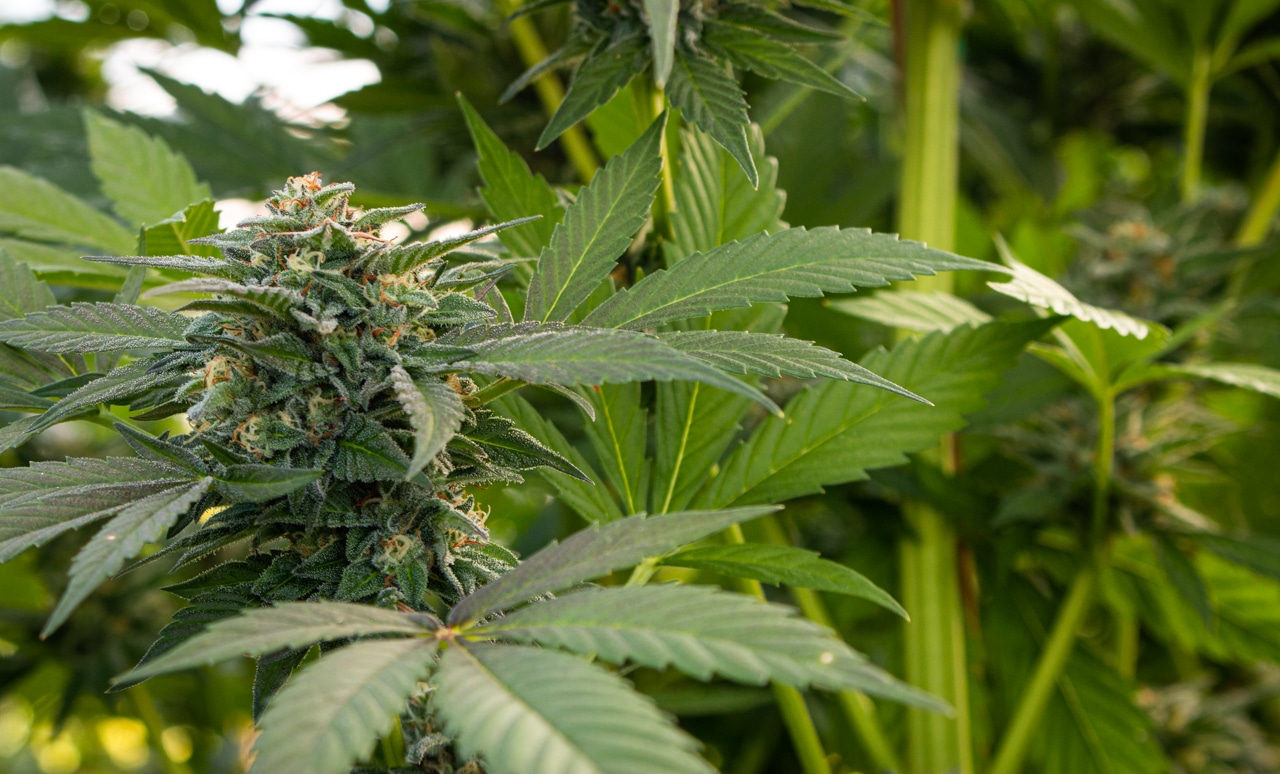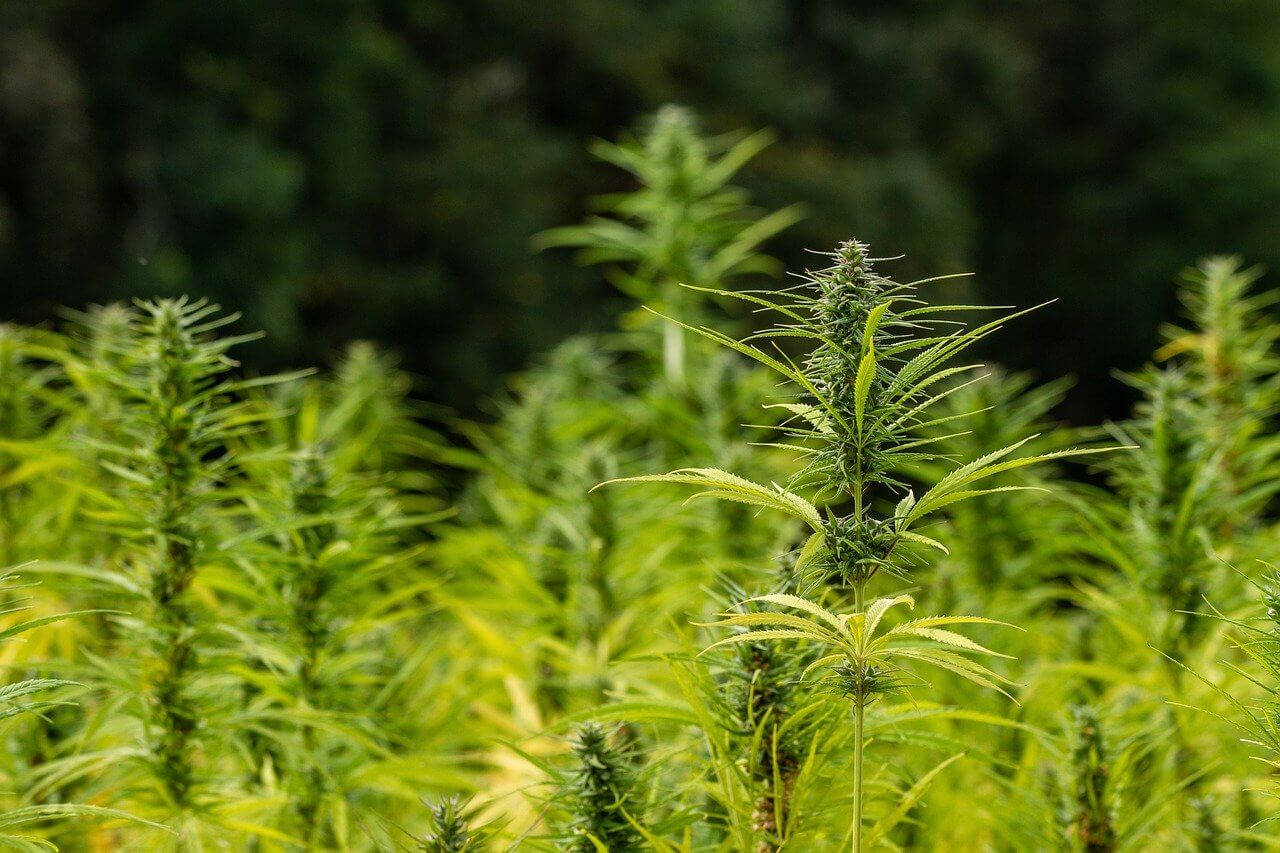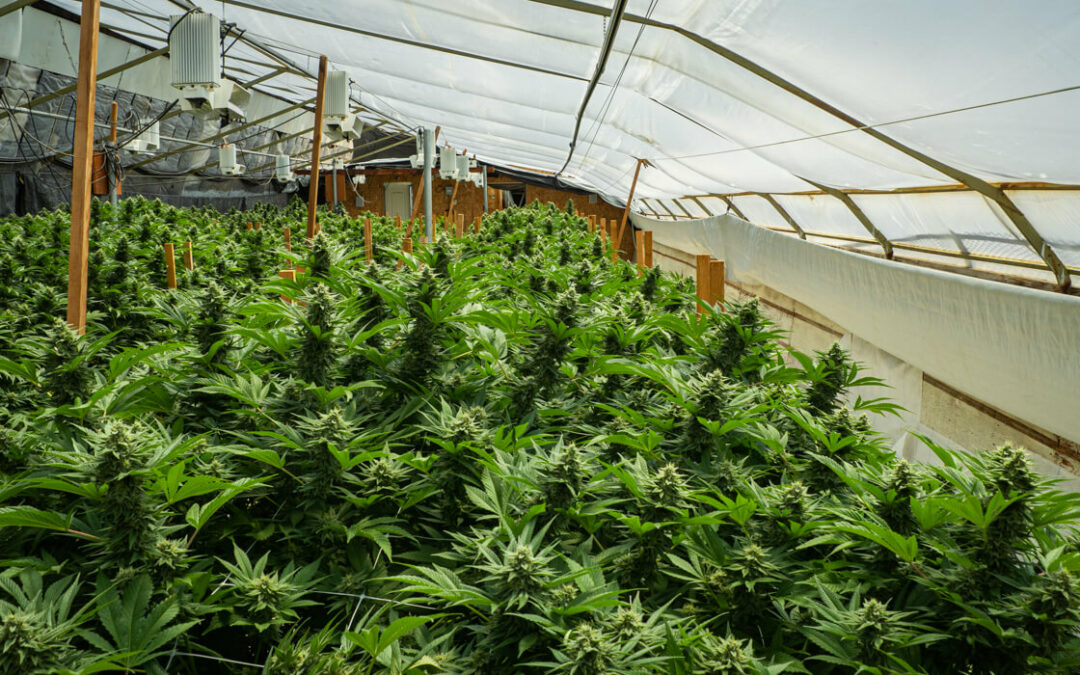
by The Real Dirt | Aug 17, 2021 | 420 Culture & Travel, 420 News, Blog, Business, Cannabis Business, Cannabis News, Growing, Industry News, Legalization, Politics
Many Humboldt County growers are struggling this season as the price of cannabis falls in California.
Humboldt County announced more than $2 million in grant funding available through Project Trellis, the county’s cannabis micro-grant, marketing and local equity program, to help the local cannabis community enter into the commercial cannabis marketplace. Those eligible can apply for up to $10,000 “per service” in accordance with Humboldt County’s eligibility requirements for Project Trellis.
“All applications and supporting documents will be reviewed by Economic Development staff to ensure the applicant meets eligibility criteria. Some projects may receive a lower amount than what was requested, based on the availability of funds or needs of service,” a news release from the county stated.
“A typical approval process can take 60 or more days from when the application is received. Upon approval, the applicant will receive a notice of award, contract, fund request form and a W9 form.”
Project Trellis was built as a three-tier program to redirect cannabis tax revenue back into the local economy. In September 2019, the county sought proposals for cannabis branding and marketing.
The goal of the program is to “implement the recommendations set forth in the Humboldt County Cannabis Equity Assessment” and “to further equity among those impacted by the criminalization of cannabis, by providing services to individuals in Humboldt County’s cannabis community, particularly small growers who were adversely affected by the criminalization of cannabis.”
While $2 million may seem like a big chunk of change, Humboldt County Growers Alliance executive director Natalynne DeLapp said the county’s “independent cannabis farmers are in crisis.”
“It is great that the county developed Project Trellis…and (has) secured nearly $5 million in funding from the state to support communities most impacted by the War on Drugs in entering the regulated cannabis market, but now it is time to get serious,” she said. “…Perhaps 200 of Humboldt County’s 900-plus cultivation operators, who can prove the War on Drugs has negatively impacted them, could receive up to $10,000 in fee waivers for professional services like fee waivers, technical assistance or installing solar or water storage systems.”
![[Denver Post] Oklahoma is the new “Wild West of weed” — and Colorado marijuana entrepreneurs are helping fuel the green rush](https://therealdirt.com/wp-content/uploads/2021/08/TDP-L-Oklahoma-cannabis-RJS-31799.jpeg)
by The Real Dirt | Aug 16, 2021 | 420 Culture & Travel, Blog, Business, Cannabis Business, Cannabis Law, Cannabis Law and Compliance, Culture, Denver Post, Growing, Industry News, Legalization, Medical Marijuana
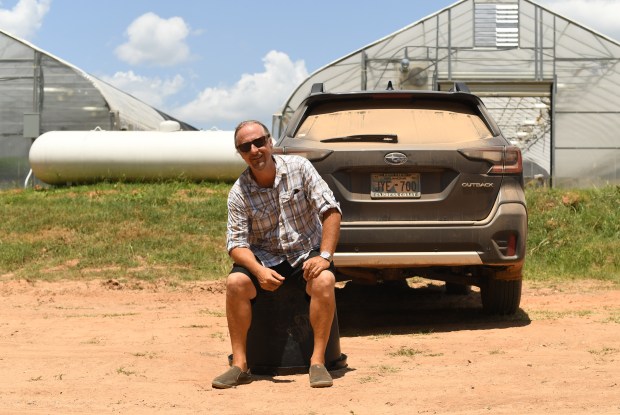
Lax regulation and low barriers to entry have triggered cannabis’s explosive growth in Sooner State
OKEMAH, Okla. — Chip Baker surveyed a vast field on the outskirts of an old hay farm an hour east of Oklahoma City, his ponytail waving in the thick, humid air, his voice growing excited.
“This is probably the largest collection of Squirt in the world!” he boasted, pointing to an array of neatly plotted cannabis plants before him that will soon flower pounds of the popular strain.
Baker would know. From the time he planted his first marijuana plant at 13, he’s been all about growing weed. A dream formed in the Georgia fields took him to Humboldt County, California — the nation’s earliest pot epicenter — then Colorado, the country’s first recreational market.
But it’s here in rural Oklahoma, down a dusty dirt road along the banks of the North Canadian River, where true cannabis cowboys — including droves of Colorado entrepreneurs like Baker — are buying mammoth properties to grow mammoth numbers of plants, all in a quest for mammoth stacks of kush-derived cash.
It’s a place unlike virtually any other in America.
“Other states grow patches,” Baker said with a grin, taking in the 90-acre, 40,000-plant cannabis farm before him. “In Oklahoma, we grow fields.”
The Sooner State, as deeply red as the American political palette will go, has almost overnight become the hottest place in the country to grow marijuana. It’s an unprecedented look at what happens when the government stays largely out of the picture and lets the free market run wild.
And Colorado businesses are pumping their sizeable dollars and cannabis expertise into the state, hoping to cash in on what Baker and others in the industry call the next green rush.
“It’s the Wild West of weed,” he said, “in all its glory.”
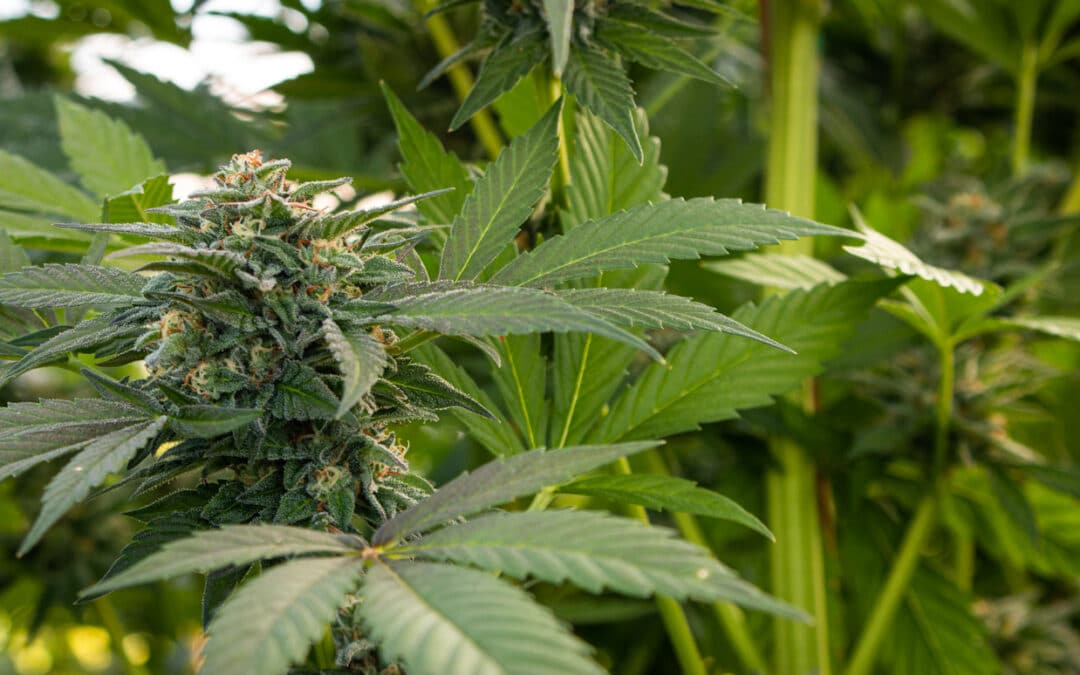
by The Real Dirt | Aug 11, 2021 | Blog, Cannabis Business, Cannabis News, Industry News, Legalization
Maine’s recreational cannabis sales continued to soar in July, reaching a new high and more than doubling their growth pace.
Sales of cannabis for recreational, adult use hit $9.43 million, up 45% from June’s record total of $6.47 million. More than 124,000 purchases took place over the month of July, raking in $943,480 in sales tax, according to data from the Maine Office of Marijuana Policy.
“These numbers demonstrate that, as access improves, more consumers are choosing the tested, tracked, and well-regulated market over a longstanding illicit market,” OMP spokesman David Heidrich told Mainebiz.
“With that said, anecdotally, it would appear as though the natural growth of this new industry, the Independence Day holiday, and summer tourism have all contributed to the robust sales growth witnessed in July.”
Maine’s recreational adult-use industry has continued to grow from its first month of sales in October 2020 of approximately $1.4 million with only six active licensees, according to OMP. June’s record sales of $5.36 million were up nearly 21% from May, and May’s were up 23% from the previous month.
To date the industry has brought in a total of more than $38.6 million and over $3.8 million in taxes in less than a year.
With more and more applicants applying for licenses, the trend looks likely to continue. There are currently 46 licensed retail stores in the state, and another 194 in the process of getting licensed.
There are 43 licensed facilities actively cultivating cannabis and another 183 in process. Sixteen of those are certified to produce “clean cannabis” from the Maine Organic Farmers and Gardeners Association.

by The Real Dirt | Aug 10, 2021 | 420 News, Blog, Business, Cannabis Business, Cannabis News, Culture, Industry News
In a historic year for Washington companies going public, Seattle-based Leafly, an online cannabis marketplace, will push the 2021 total even higher.
The company announced Monday it will go public through a special merger with New York-based Merida Merger Corp (Nasdaq: MCMJ). The transaction is expected to value Leafly at $385 million and add approximately $161 million of additional proceeds to the company.
The combined company will adopt Leafly’s name, and is expected to trade on Nasdaq with the ticker symbol “LFLY.” The company said it will list its shares once the merger is complete, likely sometime this fall.
According to PitchBook, 15 companies in Washington have gone public in 2021 so far, five more than last year’s total, and the most the state has seen in the last five years.
“Online retail shopping is in our DNA,” said Yoko Miyashita, CEO of Leafly, in an interview. “What you see is … this realization from consumers that say ‘Oh, (cannabis) is like any other retail product I can order online.”
Leafly earned $36 million in revenue last year, up from $30 million in 2019, according to its investor presentation. This year, revenue is expected to increase to $43 million, and grow roughly 50% annually through 2024.
Still, the company does not expect to be profitable until 2024, predicting it will lose at least $15 million in net income from 2021 to 2023.
The company makes money mostly through subscription fees it charges cannabis retailers who list their menus on Leafly’s platform. Customers place orders with retailers through the online site, but still have to go to the cannabis shop in person to pick up their product. Leafly does not take a commission from each transaction but does make money off ad sales from retailers.
The company said it has 4,600 paying retail subscribers, with approximately 55% of North American retail cannabis licensees on its platform and 125 million annual visitors.
Miyashita said cannabis retailers are “constrained” in their ability to advertise on major social media networks because of federal prohibition laws. Leafly’s platform, giving retailers and consumers an opportunity to reach each other, is “huge,” she said. “We have one of the largest audiences in cannabis.”
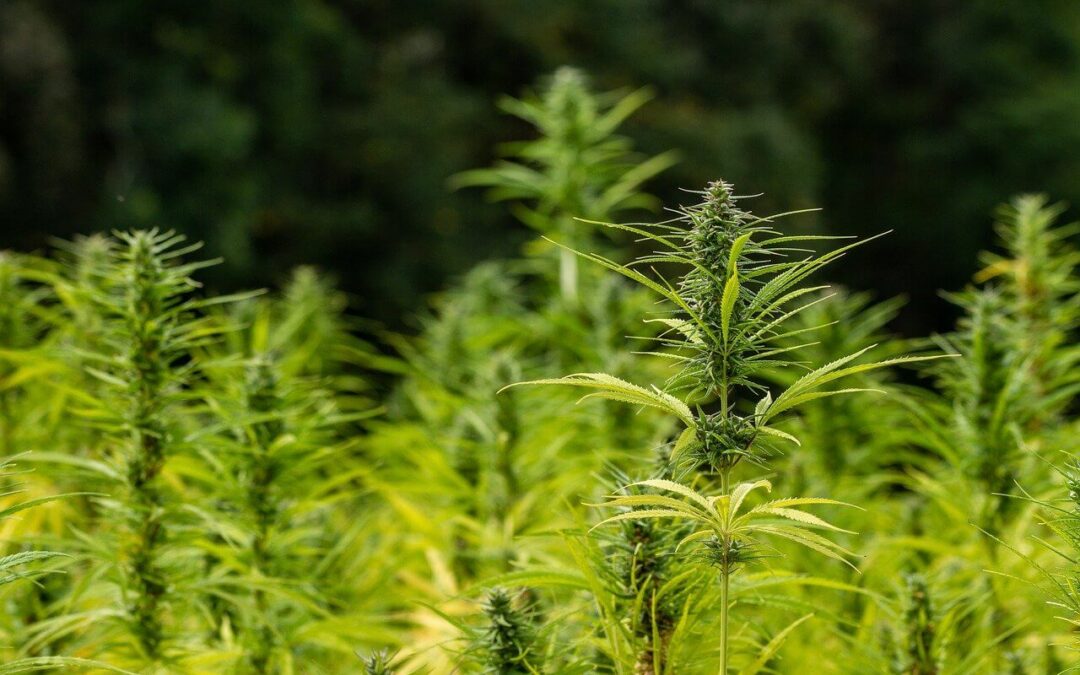
by The Real Dirt | Aug 6, 2021 | Blog, Business, Cannabis Business, Cannabis Law, Cannabis Law and Compliance, Cannabis News, Hemp, Hemp Law
An appeals panel in Texas issued a mixed judgment Thursday in a lawsuit challenging the state’s ban on smokable hemp. Regulators may enforce a ban on the processing and manufacture of products intended for smoking or vaping, the court ruled, but it cannot prevent such products made elsewhere from being sold in the state.
The decision creates a situation in which consumers may be able to freely purchase smokable hemp flower and hemp-derived CBD oils for vaping, but only if the products are produced outside Texas.
Four Texas companies challenged the ban in a lawsuit last year, asking the court to declare the restrictions unconstitutional and allow hemp products intended for smoking or vaping to be produced and sold legally. In response, a state judge eventually put the entire ban on hold, preventing the government from enforcing it until the matter could be resolved in court.
In Thursday’s ruling, a three-justice panel of the Third District Court of Appeals drew a distinction between the processing and manufacturing of smokable hemp—which lawmakers strictly prohibited its production when they legalized hemp in 2019—and distribution and sales, which regulators at the Texas Department of State Health Services (DSHS) forbade under a rule adopted a year later.
Writing for the panel, Justice Melissa Goodwin reasoned that lifting the ban on product sales was justified because the DSHS restriction went beyond the scope of lawmakers’ manufacturing ban.
“The Legislature required that the Department’s rules must reflect the principle that ‘the processing or manufacturing of a consumable hemp product for smoking is prohibited,’ but did not mention retail sale,” the judgment says. “Nevertheless, the Department adopted a rule that banned not only the processing and manufacturing of consumable hemp products for smoking, but also the distributing and retail sale of such products.”
On the other hand, the panel’s ruling will allow lawmakers’ ban on production and manufacturing of smokable hemp products to take effect. Thursday’s ruling reversed a lower court’s decision to prevent the state from enforcing that part of the ban.
“Because the Hemp Companies never provided ‘a plain and intelligible statement of the grounds’ to enjoin the enforcement of rule 300.104’s bans on manufacturing and processing consumable hemp products for smoking, we conclude that the trial court abused its discretion in granting the temporary injunction and enjoining the enforcement of that portion of the rule,” Goodwin wrote.
Advocates in favor of broader legal access to cannabis products emphasized the significance of the court’s decision to allow smokable hemp to be sold in the state. But they lamented the fact that in-state manufacturing of the products will remain illegal.
“The reversal of the ban on distributing and selling smokable hemp products is a big win for Texas farmers and hemp businesses. It is extremely important that regulatory overreach is kept in check so that Texas companies are not prevented from excelling in this market,” Jax Finkel, executive director of Foundation for an Informed Texas, told Marijuana Moment on Thursday. “I am hopeful that manufacture portion of the suit will end in a similar opinion.”

by The Real Dirt | Aug 5, 2021 | 420 News, Blog, Business, Cannabis Business, Cannabis Law, Cannabis Law and Compliance, Cannabis News, Industry News, Legalization, Politics
State law doesn’t prohibit the new licensees from unloading for millions of dollars and potentially “giving it away to the white boys again,” one critic said.
The applicants waited for more than a year for a chance to jump into Illinois’ booming weed industry.
But now that they have won lucrative cannabis licenses to open marijuana dispensaries, craft grow operations or other related businesses, some could sell the licenses before ever opening up — potentially collecting millions in the process.
With the state’s troubled cannabis licensing process careening toward a conclusion, corporatized weed firms and other cash-rich buyers are now expected to go after the new licenses — many of which are slated to go to so-called social equity applicants, a designation created to boost diversity in the lily-white weed industry.
Rickey Hendon, a former state senator who won a dispensary license in last week’s lottery, acknowledged he and other companies are now entertaining a host of proposals to sell to owners with deeper pockets. A court order in a pending lawsuit has, however, blocked the formal issuance of the pot shop permits for now.
“Of course some of the smaller companies are listening to all kinds of offers,” said Hendon, who became a de-facto spokesman for social equity candidates after they were shut out of the initial licensing process a year ago. “I’m listening to all kinds of offers.”
Hendon, who said he is merely exploring his options, believes a cannabis license could fetch between $3 million and $15 million, depending on which statewide region it allows a buyer to set up shop.
An industry source, however, estimated that each of the 185 new pot shop permits is likely worth much less, between $1 million and $3 million. The source pegged the going rate at $4-$5 million for each of the 40 new craft cultivation licenses, which were announced last month along with other permits to infuse and transport cannabis products.
But critics say the potential massive selloff goes against the spirit of the legalization law and the recent trailer bill Hendon helped write, both of which went to painstaking lengths to give people of color ownership in the highly profitable industry. What’s more, some fear predatory forces will attempt to take advantage of social equity firms trying to turn a quick profit.
Edie Moore, a fierce proponent of diversifying the industry who serves as the executive director of Chicago NORML, a marijuana advocacy group, couldn’t hold back her frustrations about the prospect of social equity firms now dumping cannabis licenses so many in the state fought hard to get to them.
“I’m not upset for people who want to get a payday. But I thought that they had got into this business to be in this business, not to just make a quick buck,” said Moore, who helped write the latest pot law and has already won a dispensary permit.
“That’s what we were fighting for,” she added. “For people to build generational wealth on owning and building and creating something within their communities, not giving it away to the white boys again.”

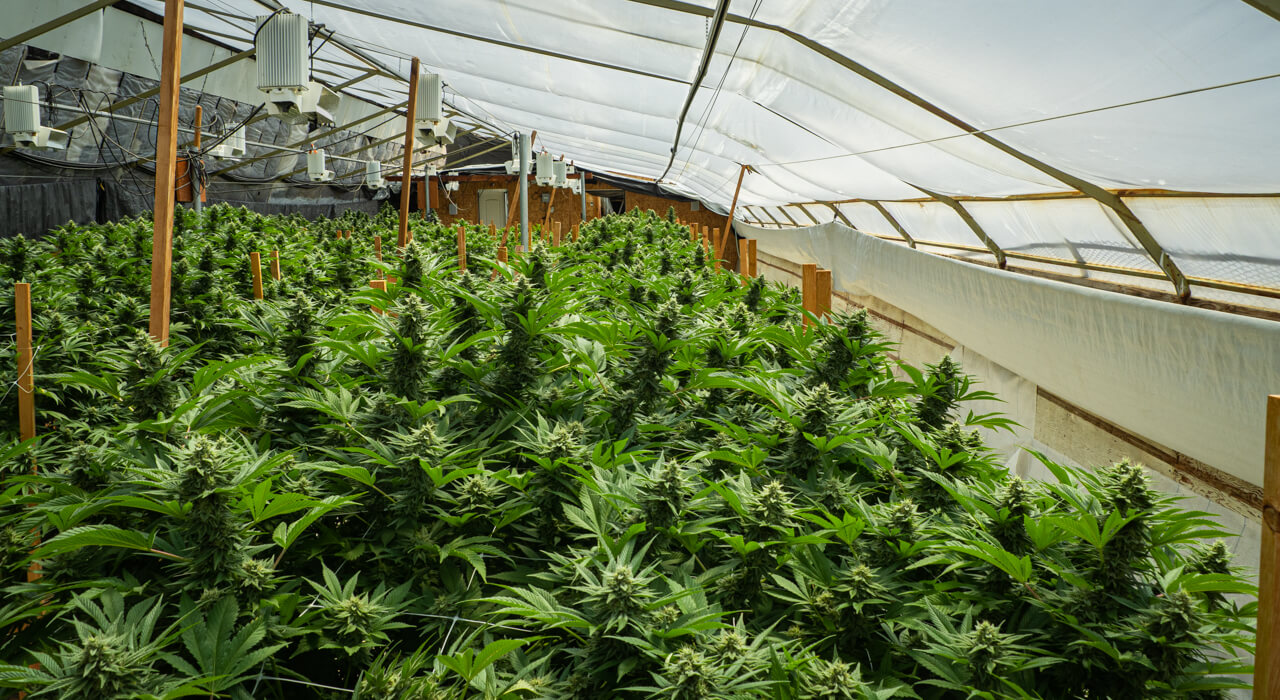

![[Denver Post] Oklahoma is the new “Wild West of weed” — and Colorado marijuana entrepreneurs are helping fuel the green rush](https://therealdirt.com/wp-content/uploads/2021/08/TDP-L-Oklahoma-cannabis-RJS-31799.jpeg)

